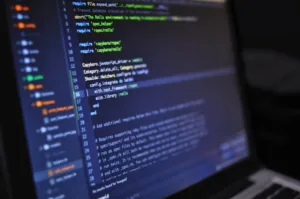
Elon Musk’s artificial intelligence company, xAI, has filed a federal lawsuit against OpenAI, accusing its rival of orchestrating a systematic campaign to steal trade secrets by hiring away key employees1. The complaint, filed on September 25, 2025, in a California federal court, alleges that OpenAI engaged in a “deeply troubling pattern” to undermine xAI by targeting individuals with knowledge of proprietary technologies and business plans1, 8. This legal action marks a significant escalation in the ongoing competitive and legal battles between Musk and the maker of ChatGPT, which directly competes with xAI’s Grok chatbot4.
The lawsuit claims that OpenAI’s strategy involved inducing employees to breach confidentiality agreements to gain access to xAI’s source code, operational advantages in data center deployment, and strategic business information1, 8. This case highlights the intense competition for AI talent and intellectual property within the Silicon Valley ecosystem, where the protection of trade secrets is becoming a critical front in the race for market dominance9. The outcome of this litigation could establish important precedents for how intellectual property disputes are handled within the rapidly evolving artificial intelligence industry.
Specific Allegations and Named Individuals
The legal filing provides specific details regarding the employees allegedly targeted by OpenAI. One individual named is Xuechen Li, a former xAI engineer who is already the subject of a separate lawsuit filed by xAI on September 3, 20251, 3, 8. According to the complaint, Li allegedly stole confidential information before joining OpenAI, though he has not yet publicly responded to these allegations. Another engineer specifically mentioned is Jimmy Fraiture, whom the lawsuit accuses of “harvesting xAI’s source code and airdropping it to his personal devices to take to OpenAI”1, 5, 8. Attempts to reach Fraiture for comment were unsuccessful at the time of reporting.
The complaint also references an unnamed senior finance executive who allegedly brought knowledge of xAI’s “secret sauce” for rapid data center deployment to OpenAI5. This suggests that the alleged information transfer encompassed not only technical specifications but also strategic operational methodologies that provide competitive advantages. The legal document portrays a pattern where OpenAI systematically identified and recruited individuals with specific knowledge areas critical to xAI’s operations, then allegedly encouraged them to violate their confidentiality obligations.
Legal Claims and Broader Context
xAI’s lawsuit against OpenAI is built on several legal claims, including trade secret misappropriation, unfair competition, intentional interference with economic relationships, and inducing employees to breach confidentiality agreements1. These allegations represent just one facet of the complex legal landscape surrounding these competing AI companies. Musk is separately engaged in litigation with OpenAI regarding its transition from a non-profit to a for-profit entity, while OpenAI has countersued Musk for harassment1, 8.
This lawsuit against OpenAI follows another recent legal action by xAI against Apple, filed in August 2025, which alleged that Apple conspired with OpenAI to suppress rival AI platforms like Grok in the App Store rankings1, 8. Apple has not yet responded to that antitrust allegation. The cumulative effect of these legal actions demonstrates the multifaceted competitive strategies being employed in the AI sector, where market positioning, talent acquisition, and intellectual property protection are all contested simultaneously.
Industry Implications and Current Status
The legal battle between xAI and OpenAI occurs against the backdrop of an intensely competitive environment for AI talent and technological advancement. The complaint specifically states that OpenAI is “targeting those individuals with knowledge of xAI’s key technologies”1, 9, highlighting the strategic importance of human capital in the development of artificial intelligence systems. Industry observers note that the resolution of this case could influence how companies approach employee mobility and intellectual property protection in the technology sector more broadly.
As of the latest reports, OpenAI has not issued any public statement regarding the lawsuit and has not responded to media requests for comment1, 8. Similarly, xAI has not provided additional commentary beyond the contents of the filed legal complaint. The absence of public statements from either party suggests a carefully managed legal strategy on both sides, with the initial arguments being presented exclusively through formal court channels rather than media communications.
The allegations described in the lawsuit represent significant claims that, if substantiated, could have substantial consequences for OpenAI’s operations and reputation. The case also raises questions about the boundaries of competitive recruitment practices in high-technology industries where employees often possess sensitive information about previous employers’ proprietary systems and strategies.
Relevance to Security Professionals
For security professionals, this case highlights the critical importance of robust data protection protocols and employee offboarding procedures. The allegations that source code was transferred via personal devices underscore the need for comprehensive data loss prevention strategies that extend beyond network perimeters. Organizations handling proprietary algorithms or sensitive operational methodologies should implement strict access controls and monitoring systems for critical intellectual property.
The case also demonstrates the legal avenues available when trade secret misappropriation is suspected. Security teams should work closely with legal counsel to ensure that confidentiality agreements are properly structured and that documentation practices support potential future litigation. Regular audits of data access patterns, especially for employees in sensitive roles or those announcing departures, can provide early warning of potential information exfiltration attempts.
Additionally, this situation illustrates the evolving nature of corporate espionage in technology sectors, where the movement of personnel between competitors can create significant security challenges. Organizations should develop clear policies regarding the hiring of employees from direct competitors, including protocols for ensuring that new hires do not inadvertently bring or use proprietary information from previous employers.
Conclusion
The lawsuit filed by xAI against OpenAI represents a significant development in the competitive landscape of artificial intelligence development. The specific allegations of trade secret misappropriation through employee recruitment highlight the intense pressure companies face to secure both technological advantages and human expertise in this rapidly advancing field. As the legal process unfolds, it will likely provide important clarifications regarding the boundaries of competitive practices in the AI industry.
The outcome of this case could influence how technology companies approach intellectual property protection, employee mobility, and competitive recruitment strategies. For now, the technology community awaits responses from the involved parties and further developments in what promises to be a closely watched legal proceeding with potential implications for the entire artificial intelligence sector.
References
- B. Brittain, “xAI sues OpenAI alleging trade secret theft,” Reuters, Sep. 25, 2025. [Online]. Available: https://www.reuters.com/technology/xai-sues-openai-alleging-trade-secret-theft-2025-09-25/
- The Economic Times, “Elon Musk’s xAI files lawsuit against OpenAI, accuses it of stealing trade secrets,” Sep. 25, 2025. [Online]. Available: https://economictimes.indiatimes.com/tech/technology/elon-musks-xai-files-lawsuit-against-openai-accuses-it-of-stealing-trade-secrets/articleshow/xxxxxx.cms
- K. Bell, “xAI sues OpenAI, alleging trade secret theft,” Engadget, Sep. 25, 2025. [Online]. Available: https://www.engadget.com/xai-sues-openai-alleging-trade-secret-theft-xxxxxx.html
- A. Gregg, “Musk’s xAI accuses OpenAI of stealing secrets in new lawsuit,” Washington Post, Sep. 25, 2025. [Online]. Available: https://www.washingtonpost.com/technology/2025/09/25/musk-xai-openai-lawsuit-trade-secrets/
- J. Keegan, “xAI lawsuit details alleged trade secret theft by OpenAI,” Sherwood News, Sep. 25, 2025. [Online]. Available: https://sherwood.news/xai-lawsuit-details-alleged-trade-secret-theft-by-openai/
- Wall Street Pit, “xAI’s lawsuit against OpenAI highlights AI industry trade secret battles,” Sep. 25, 2025. [Online]. Available: https://wallstreetpit.com/xxxxxx/xai-lawsuit-openai-trade-secrets/





